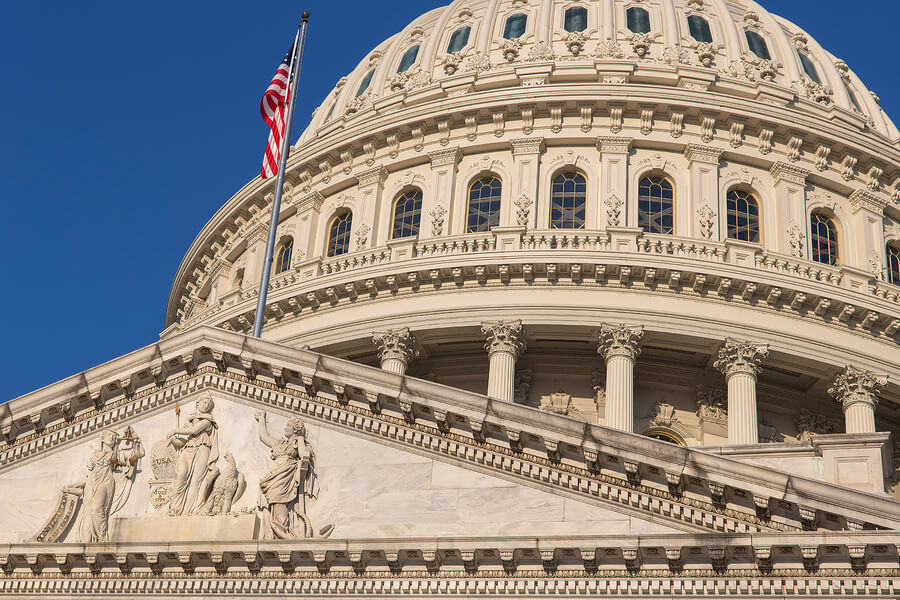Last week, Senator Bernie Sanders (I, VT) and Senator Shelton Whitehouse (D, RI) introduced the “For the 99.5% Act,” which includes a reduction in the estate tax exemption to $3.5 million per individual and $7 million per couple. Sanders also introduced a bill to raise the corporate tax to 35% and reduce a corporation’s ability to shelter offshore profits.
We have known for a while there will be changes coming to estate and corporate taxes. Many estate planning attorneys expect this act to become a foundation for the estate, gift, and GST provisions of the 2021 tax bill President Biden presented during his campaign. We do not know which changes Congress will pass, but we know that changes in whatever bill eventually passes will require estate plans to be adjusted.
The changes expected include larger estates being subject to higher tax rates. The proposal calls for the increase of the 40% estate tax rate to 45% for taxable estates less than $10 million, 50% for taxable estates over $10 million, and 65% for taxable estates greater than $1 billion.
The “95.9% Act” calls for eliminating many of the estate planning tools used for the last twenty years. This includes GRATS (Grantor Retained Annuity Trusts), step-up in basis, the grantor trust rules, and eliminating most minority interest discounts and many marketability discounts for passive assets.
The proposed legislation reduces the lifetime gift tax exemption and changes to the Generation Skipping Tax (GST) exemption and rules. It is also possible that Irrevocable life insurance trusts, which own the life insurance policy and shelters the proceeds from estate taxation, may be eliminated.
The expected changes to the estate tax laws may be finding more popular support following the release of a report showing that the top 1% of Americans are managing to not pay far more in income taxes than the IRS’s methods had assumed.
The report from researchers from the IRS, the London School of Economics, Carnegie Mellon University, and the University of California, Berkeley, shows the wealthiest 1% of households fail to report 21% of their actual income, and 6% of that stems from “sophisticated evasion” strategies missed by federal audits. The unreported income might be as much as twice as large as the IRS thought.
With declining enforcement staff, the IRA’s rates of audits have declined in the last ten years, when the top 1% of wealthy Americans have become even more skilled at underreporting income. This costs the federal government about $175 billion a year. For a government now seeking revenues to recoup the pandemic’s enormous costs, there is a call for re-investing in the IRS’s ability to go after tax avoiders.
According to The Wall Street Journal’s article, “High-Income Tax Avoidance Far Larger Than Thought, New Paper Estimates,” pass-through businesses and partnerships, offshore tax avoidance, and other sophisticated entities have made it harder for the IRS to uncover income.
An op-ed in The New York Times’ Sunday Review, “How to Collect Unpaid Taxes,” references an IRS report from 2019 that estimated “Billions of dollars in business profits, rent and royalties are hidden from the government each year. By contrast, more than 95 percent of wage income is reported.”
The government’s inability to enforce tax laws is a function of how the IRS has been shrinking over time, with fewer workers. But former IRS commissioner Charles Rossotti says that Congress needs to change the law and create a third-party verification for business income, just as there is a third-party verification for wages. Rossotti proposes that information be collected from banks, requiring them to produce annual account statements totaling income and outflow, similar to the 1099 forms that investment firms must provide to clients. The Times thinks this would increase the taxes paid by those not reporting income by scaring people into compliance. Expect the banking and securities lobbyists to push back against any new requirements.
As someone who has worked in complex tax law for several decades, I have seen how often the IRS and academics have engaged in hand-wringing over how unfair the tax laws are, depending on the times, to the wealthy or American wage earners. But for now, tax law permits these strategies, and it appears any plan in place before a new tax law is signed will be grandfathered in.
We are keeping a close watch on the pending legislation as it winds its way through various committees and will continue to keep you informed on how it may affect your estate plan.
References:
The Wall Street Journal (March 22, 2021) “High-Income Tax Avoidance Far Larger Than Thought, New Paper Estimates”
The New York Times (March 20, 2022) “How to Collect $1.4 Trillion in Unpaid Taxes”




